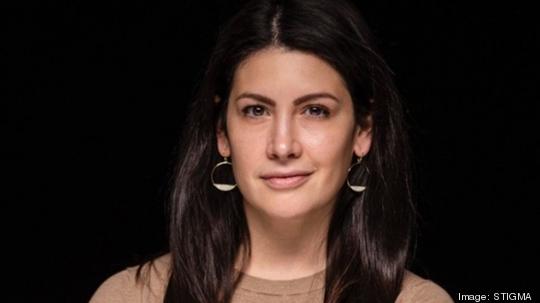
Ariana Alejandra Gibson is keenly aware of how mental health challenges impact people and their families. Having grown up with a father diagnosed with schizophrenia, married a husband who survived child sexual abuse, and herself battled anxiety disorder and panic attacks, Gibson has seen the toll mental illness takes.
And even as the topic of mental health has become more mainstream and less taboo in recent years, many people still struggle with articulating how they feel, finding others with a shared experience and asking for help.
To build a better resource for people struggling with mental illness, Gibson launched Stigma, an app designed as a support system for anyone struggling with mental health. Stigma crowdsources videos from people battling a range of conditions, from depression to obsessive compulsive disorder and more, to help people discover others who are similarly struggling and ask for help.
"At the heart of what we're trying to do is create safe spaces for people to practice talking about their mental health, with people who share their same experience, with the end game being we make it easier to ask for help," Gibson said.
Founded in 2021, Stigma officially launched its iOS and Android app this month. The startup lets you search its library of video stories to find people with your shared experience, offering filters that let you search for specific content around depression or suicidal ideation, for example. You can ask for videos of support, which it calls "messages of hope," and send videos to others in need.
The messages between users are asynchronous, meaning Stigma is not facilitating live, one-to-one conversations. It's not a social network. It doesn't offer teletherapy. And it's not a replacement for treatment. Instead, its aim is to offer stories of support and create a safe place where people can share their personal experiences.
"What I want it to be is hope on demand," Gibson said. "Our vision is to be the most trusted mental health content destination in the world."
Stigma, which was one of Chicago Inno's 22 Startups to Watch in 2022, has raised nearly $600,000 in funding to date. Its investors include Chicago's LongJump, SSC Venture Partners, and angel investors like Cameo CEO Steven Galanis and Relativity CEO Mike Gamson.
Gibson discovered the power of video storytelling in college while studying to be a documentary filmmaker. She eventually made a documentary about her husband's experience as a survivor of child sexual abuse. When it was finished, he had a "tremendous" number of people reach out on LinkedIn to say they'd gone through the same thing, and praised him for speaking out about his experience.
"If LinkedIn messenger is the place they’re going to say ‘me too,' that's bad," said Gibson, who knew there had to be a better platform for people to share stories and seek help.
Stigma currently has hundreds of users, Gibson said, and it is eyeing things like patient referrals and a paywall as ways to generate revenue, as well as sponsored content. But the ability for users to ask for messages of hope, and to share their story, will always remain free, she said.






